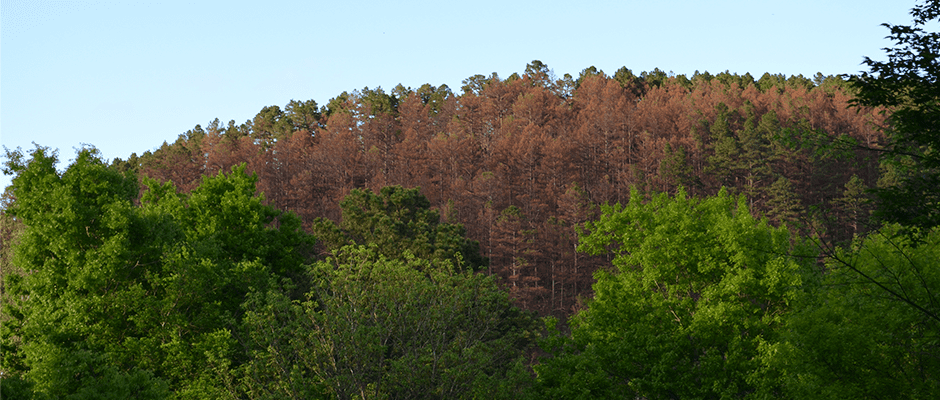Share this article
Climate change drives destructive beetle northward
The southern pine beetle (Dendroctonus frontalis) — one of the world’s most destructive tree-killing insects — is moving north in the United States, likely a result of climate change, according to recent research.
The beetle, native to the southern United States, has been making its way north for quite some time now. In the early 2000s, the beetle arrived in New Jersey where it quickly reached outbreak stage and began damaging forests. It reached Long Island, N.Y., in 2015 and was soon damaging trees in Connecticut and Massachusetts.
“It was very rapid,” said Corey Lesk, a graduate student in the Department of Earth and Environmental Science at Columbia University and the lead author of a recent study published in Nature Climate Change.
In the study, Lesk and his colleagues looked at historical information collected by the U.S. Forest Service on where the insects have been found since 2002 in New Jersey. Looking at weather data for indications of a relationship between warmer winter climates and the presence of southern pine beetles, they found that the time of the beetle’s expansion corresponded with suitable warmer climates in New Jersey.
Using this model to predict where the beetle would expand, they found the whole Atlantic coast through Nova Scotia appears to be vulnerable to southern pine beetle outbreaks by 2020.
The destruction that the beetles cause can directly affect a variety of wildlife that use these pine forests, Lesk said, particularly birds and insects, including butterflies, which face a variety of other threats.
“These pine forests are sometimes very localized ecosystems,” he said. “Some of these species are already threatened to some degree and could be fairly sensitive to changes in those small forest areas.”
Lesk hopes the model will give managers an idea of where southern pine beetles will likely arrive so that they can consider management actions early.
“This can be used to raise the flag, if it isn’t already obvious, that this is something that people should pay attention to,” he said.
Header Image: A forest in northeastern Oklahoma was hit hard by southern pine beetles, resulting in dead pines. ©Kevin Krajick/Lamont-Doherty Earth Observatory








